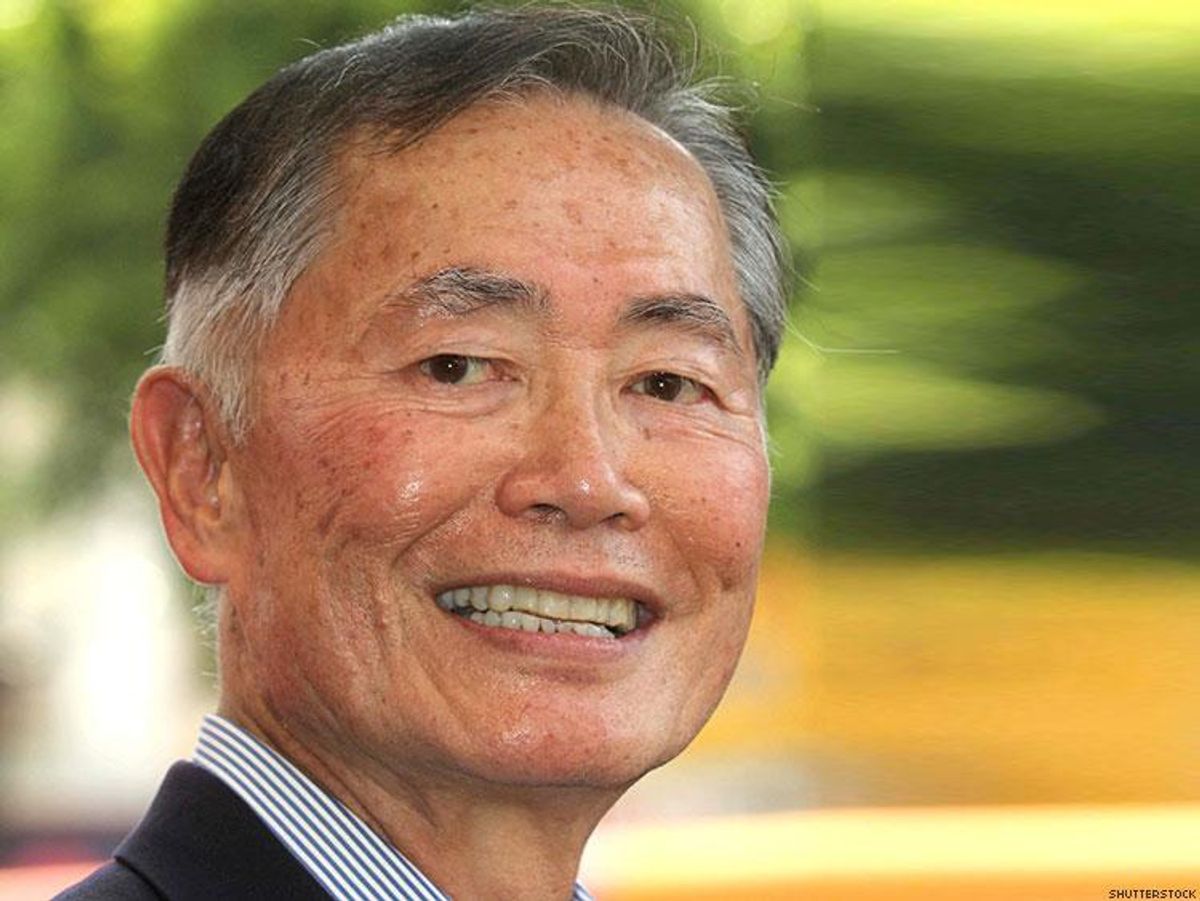People
George Takei Opens Up on His Closeted Past

'It was excruciating to always have your guard up,' Takei says in an interview with The Michelangelo Signorile Show.
Jase Peeples
December 28 2015 6:04 PM EST
January 03 2016 9:55 PM EST
By continuing to use our site, you agree to our Private Policy and Terms of Use.

'It was excruciating to always have your guard up,' Takei says in an interview with The Michelangelo Signorile Show.
While promoting his new Broadway musical Allegiance - a story based on the struggles his family faced as Japanese-Americans who were forced into internment camps during World War II - George Takei opened up in an interview with The Michelangelo Signorile Show on Siruus XM Progress about his reasons for staying in the closet before coming out publicly as a gay man in 2005, reports Huffington Post.
"My father told me about American democracy," Takei told Signorile. "And he said you have to be actively engaged in the political process to make our democracy work. So I've been doing that my entire life. Civil rights movement. The peace movement during the Vietnam conflict. The movement to get an apology and redress for Japanese-Americans. But I was silent on that one issue that was closest to me."
Takei revealed he became terrified public knowledge of sexuality would negatively impact his career after he watched the rising star of another closeted gay actor, Hollywood heartthrob Tab Hunter, fade after he was targeted by a tabloid in the 1950s with allegations and innuendo about his sexuality.
"[It was] most excruciating for me, because I wanted to be an actor," Takei said. "And if I wanted that career, I had to be closeted. Because when I was a teenager, there was a heartthrob named Tab Hunter. People today might not recognize that name. He was a blond, stunningly handsome boy next door. All American movie star guy. Every other movie coming from Warner Brothers studio starred Tab Hunter. But Confidential magazine exposed him as gay. And suddenly he faded."
Takei also revealed he felt additional pressure to succeed as an actor after working hard to convince his father it was a viable career choice.
"I had convinced my father to let me pursue this career, and I passionately wanted it," he said. "And here was this conflict in me and I hadn't shared it with my father. And it was excruciating to always have your guard up. Particularly because being an actor you're public and visible. I could be seen coming out of a gay bar. Who could have seen me?"
"So you're always on guard," he added. "You're always, you know, insecure, and that affected my life very much. And it was such a relief to be out and not be looking over your shoulder, tightly gripped all the time."
Since coming out, Takei has become a powerful voice for LGBT equality as well as humanitarian and civil rights.
He recently blasted Donald Trump after the Republican presidential candidate proposed barring Muslims from entering the United States. Takei compared Trump's plan to the "failure of political leadership" and "racial hysteria" that resulted in the internment of Japanese-Americans during World War II.
"Donald Trump is the perfect example of that failure," the gay actor added.
"'Get rid of the Japs' was the most popular political issue of the time," he told MSNBC, "and they didn't recognize the fact that two-thirds of us were American citizens."
"We were Americans, and yet they thought that we had an organic, genetic loyalty to the emperor [of Japan]" he continued. "And so we were all imprisoned, with no charges. It was the most unconstitutional act, and President Ronald Reagan, in 1988, apologized for that."
Listen to a clip from Takei's appearance on The Michelangelo Signorile Show below.